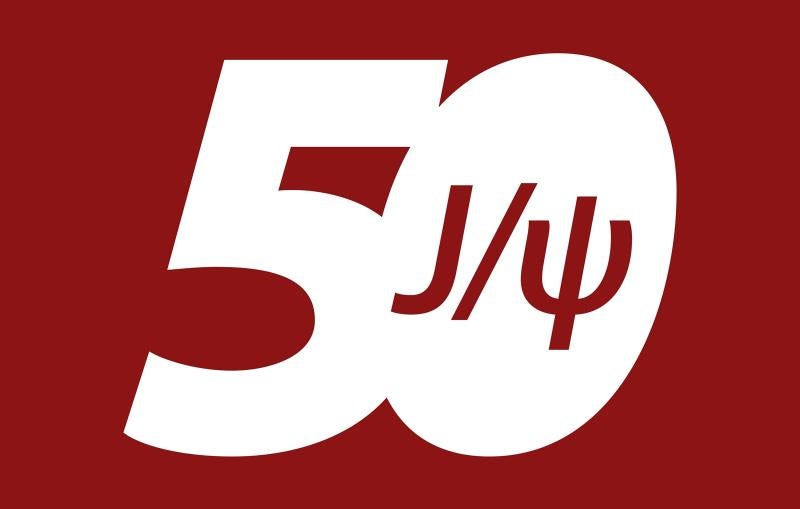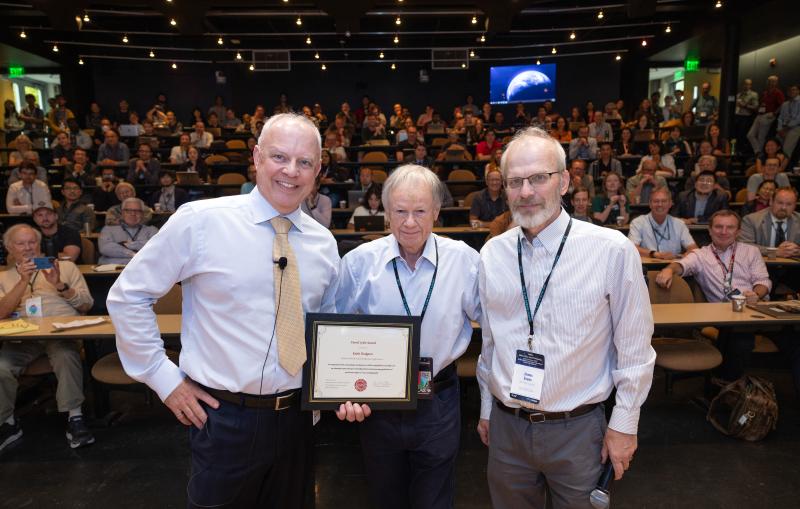Regional Science Bowl returns to in-person competition at SLAC
This year’s regional champions, Saratoga High School and Joaquin Miller Middle School, are accompanied by the first-ever Good Sport and Volunteer Award winners.
By Chris Patrick
After two years of virtual competition, the annual Regional Science Bowl returned in person to the Department of Energy’s SLAC National Accelerator Laboratory. Students from the San Francisco Bay Area descended upon the lab to test their mastery of science and math questions at the separate high school and middle school events, which are part of the National Science Bowl.
On Feb. 11, Saratoga High School’s Team 1 triumphed over 27 other teams – four of which were first-time participants in the Science Bowl – from a total of 23 schools.
Kathy Nakamatsu, chemistry teacher at Saratoga and the team’s coach, believes the return to in-person competition was her team’s key to success: Saratoga had three seniors on the team who had prior experience playing in person, whereas many other teams’ members had only played virtually.
“I think having that experience helped because it’s really different,” she said. In the virtual event, only one team answers questions at a time and the students on that team are allowed to consult with each other. In-person play adds intensity because teams go head-to-head in the same room, and teammates aren’t allowed to confer.
Saratoga has competed in the Science Bowl for 12 years but had not won until this year. Nakamatsu and the team had an inkling that things would go differently this year when they beat last year's champion Lynbrook High School in their first match. Their long-anticipated victory was made sweeter by the fact that they didn’t lose a match the whole day.
“We've wanted this for so long and it was just heartbreaking to repeatedly place second or third,” Nakamatsu said. “I'm really proud of the students. They worked hard for this.”
Middle school winners continue their streak
Two weeks later at the middle school Regional Science Bowl on Feb. 25, San Jose’s Joaquin Miller Middle School Team 1 beat 19 other teams from 11 total schools to secure their second win in two years.
Though the team was anxious upon their arrival at SLAC, they quickly found their footing. Their coach, Vibha Walia, a science teacher at Joaquin Miller, said their most intense match was their first double-elimination round.
The team remained deadlocked with The Harker School’s middle school team throughout a nailbiter match until a rare tiebreaker granted Joaquin Miller victory, ultimately setting the tone for the rest of their day.
Walia attributes the team’s success to the trust they’ve built among each other during months of practice and preparation.
“Witnessing the fruits of the team's hard work was a gratifying experience,” Walia said. “It was great to see students adapt to in-person games after two years. The team felt both validated and motivated to compete in nationals.”
The winning teams from Saratoga and Joaquin Miller will continue on to the National Science Bowl in Washington, D.C. April 27 through May 1.
Bowl of sunshine
This year’s Science Bowl also welcomed two new ways for participants to be recognized.
With a landslide of votes in their favor, Castilleja School’s high school team, from Palo Alto, secured the inaugural Good Sport Award, which recognizes team spirit and goodwill.
Jon Rockman, a physics teacher at Castilleja and the team’s coach, credits this win to their unwavering positivity and enthusiasm.
“Throughout our practice sessions and at the competition they saw every correct answer as a chance to celebrate and every missed answer as a learning opportunity,” he said.
Middle school winners Westborough Middle School of South San Francisco demonstrated a similar sunny outlook. They came into the competition with the intention to have a good time, which they achieved by bonding with and cheering for the other teams.

“Our primary team goal is to have fun learning,” said Corinna Low, Westborough’s science department chair, teacher, and Science Bowl team coach. “I feel like this is why our team comes to the regionals each year with a positive attitude and an earnest appreciation for all the teams we get to play.” Grateful for their win, the team wore their medals to school the following Monday.
Volunteer surprises
2023 was also the first year that volunteers could earn an award. For each event, the SLAC Cares Ray Ng Science Bowl Volunteer Award was given to two volunteers who embodied a commitment to SLAC’s values of excellence, integrity, collaboration, respect, and creativity.
Science Bowl organizers named the award after Ng, who brought the first Regional Science Bowl to SLAC in 2005 as the regional coordinator, to recognize his contributions and commitment through the years. They surprised Ng, who continues to volunteer at Science Bowl events, on the day of the high school competition by announcing the award’s name in the auditorium.
“I did not expect it but am quite honored,” he said. “SLAC staff and management deserve the credit for hosting. They have bought into the education outreach efforts to reach the youth in the Bay Area for the future of the nation.”
A total of 95 volunteers supported the high school and middle school events, and many volunteered at both.
Two SLAC employees, Adile Safa, administrator for CFO George Clark and the Business Services Division, and Mary Wong, administrative associate for the Environmental Protection Department, won the Ray Ng Awards at the high school event. They worked together on the day to check in arriving teams, direct traffic, and answer questions. They both said they were surprised and honored to be given this award out of so many volunteers.
At the middle school event, Jason Juang, a software engineer and Science Bowl alumnus, and Elizabeth Huffaker, facilities specialist at SLAC, won the Ray Ng Awards.
Wong said seeing the future of STEM’s excitement was even better than receiving an award: “It was great to see so many young people excited about being at SLAC in addition to being at the Science Bowl!”
The DOE’s Office of Science manages the National Science Bowl® and sponsors the finals competition. The Office of Science is the single largest supporter of basic research in the physical sciences in the United States and is working to address some of the most pressing challenges of our time.
For questions or comments, contact the SLAC Office of Communications at communications@slac.stanford.edu.
About SLAC
SLAC National Accelerator Laboratory explores how the universe works at the biggest, smallest and fastest scales and invents powerful tools used by researchers around the globe. As world leaders in ultrafast science and bold explorers of the physics of the universe, we forge new ground in understanding our origins and building a healthier and more sustainable future. Our discovery and innovation help develop new materials and chemical processes and open unprecedented views of the cosmos and life’s most delicate machinery. Building on more than 60 years of visionary research, we help shape the future by advancing areas such as quantum technology, scientific computing and the development of next-generation accelerators.
SLAC is operated by Stanford University for the U.S. Department of Energy’s Office of Science. The Office of Science is the single largest supporter of basic research in the physical sciences in the United States and is working to address some of the most pressing challenges of our time.








